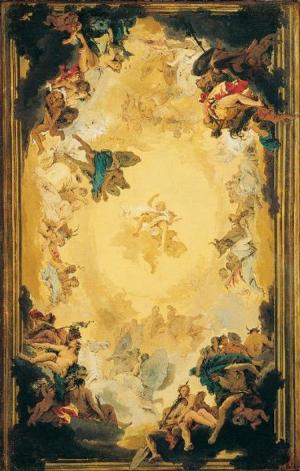History of the Union Jack and Flags of the Empire
Nonfiction, Religion & Spirituality, New Age, History, Fiction & Literature| Author: | Barlow Cumberland | ISBN: | 9781465613653 |
| Publisher: | Library of Alexandria | Publication: | March 8, 2015 |
| Imprint: | Language: | English |
| Author: | Barlow Cumberland |
| ISBN: | 9781465613653 |
| Publisher: | Library of Alexandria |
| Publication: | March 8, 2015 |
| Imprint: | |
| Language: | English |
There is an instinct in the human race which delights in the flying of flags—a sentiment which appears to be inborn, causing men to become enthusiastic about a significant emblem raised in the air, whether as the insignia of descent, or as a symbol of race, or of nationality; something which, being held aloft before the sight of other men, declares, at a glance, the side to which the bearer belongs, and serves as a rallying point for those who think with him. The child chortles at a piece of riband waved before him; a boy marches with head erect and martial stride as bearer of the banner at the head of his mimic battalion; the man, at duty's call, rallies to his national standard, and leaving home and all, stakes his life for it in his country's cause; and when the battle of life is closing and steps are homeward bound, the gray-beard, lifting his heart-filled eyes, blesses the day that brings him back within sight of his native flag. At all ages and in all times has it been the same. The deeper we go into the records of the past the more evidence do we find that man, however varied his race or primitive his condition, however cultured his surroundings or rude his methods, has universally displayed this innate characteristic instinct of delighting and glorifying in some personal or national emblem. To search for and discover the emblems which they bore thus discloses to us the eras of a people's history, and, therefore, it is that the study of a nation's flag is something more than a mere passing interest, and becomes one of real educational value, meriting our closest investigation, for the study of Flags is really the tracing of History by sight. In ancient Africa, explorations among the sculptured antiquities on the Nile have brought to light a series of national and religious emblem-standards, which had meaning and use among the Egyptians long before history had a written record. The fans and hieroglyphic standards of the Pharaohs are the index to their dynasties. The Israelites, at the time of the Exodus, had their distinctive emblems, and in the Book of Numbers, it is related how Moses directed that in their journeyings, "Every man of the children of Israel shall pitch by his own standard, with the ensign of their father's house."
There is an instinct in the human race which delights in the flying of flags—a sentiment which appears to be inborn, causing men to become enthusiastic about a significant emblem raised in the air, whether as the insignia of descent, or as a symbol of race, or of nationality; something which, being held aloft before the sight of other men, declares, at a glance, the side to which the bearer belongs, and serves as a rallying point for those who think with him. The child chortles at a piece of riband waved before him; a boy marches with head erect and martial stride as bearer of the banner at the head of his mimic battalion; the man, at duty's call, rallies to his national standard, and leaving home and all, stakes his life for it in his country's cause; and when the battle of life is closing and steps are homeward bound, the gray-beard, lifting his heart-filled eyes, blesses the day that brings him back within sight of his native flag. At all ages and in all times has it been the same. The deeper we go into the records of the past the more evidence do we find that man, however varied his race or primitive his condition, however cultured his surroundings or rude his methods, has universally displayed this innate characteristic instinct of delighting and glorifying in some personal or national emblem. To search for and discover the emblems which they bore thus discloses to us the eras of a people's history, and, therefore, it is that the study of a nation's flag is something more than a mere passing interest, and becomes one of real educational value, meriting our closest investigation, for the study of Flags is really the tracing of History by sight. In ancient Africa, explorations among the sculptured antiquities on the Nile have brought to light a series of national and religious emblem-standards, which had meaning and use among the Egyptians long before history had a written record. The fans and hieroglyphic standards of the Pharaohs are the index to their dynasties. The Israelites, at the time of the Exodus, had their distinctive emblems, and in the Book of Numbers, it is related how Moses directed that in their journeyings, "Every man of the children of Israel shall pitch by his own standard, with the ensign of their father's house."















